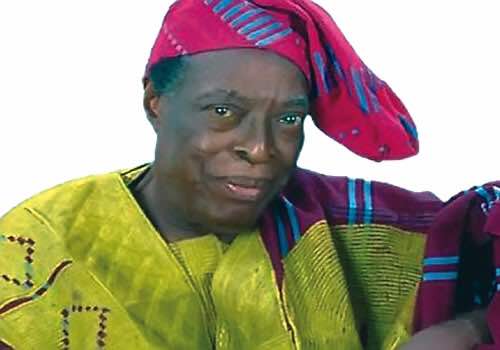News
READ: Full Profile Of Late Nollywood Icon (1930-2017)

Faleti was born in Agbo-Oye, Oyo State, though lived in Obananko, Kuranga, near Oyo State. He is the first son of his father, Joseph Akanbi Faleti and the only child of his mother, Durowade Ayinke Faleti. From an early age Alagba Faleti always had a passion for drama.
Unfortunately, his parents could not fund his education to pursue his dreams due to the lack of income, so he decided to put his primary education on hold. He then gathered a couple of interested colleagues and started his own successful theatre group, named Oyo Youth Operatic Society (founded in 1949).
Faleti later found his way back to school by getting a job in a primary school, in which he worked for six years to raise enough funds for his secondary schooling with the financial support of his father. In 1966, he attended the University of Dakar in Senegal and obtained a Certificate of proficiency in French Language and Civilization.
Two years later, he graduated from the University of Ibadan , Nigeria, with an honours degree in English. In 1971, he attended the Radio Netherlands Training Center in Hilversum , the Netherlands, and received a certificate in Television Production.
Career
Faleti has written, produced and acted in several popular Yoruba plays. he is also known for his poems. He was a teacher at Ife Odan, located near Ejibo Town.] He was also the General Manager of Broadcasting Corporation of Oyo State (BCOS), which is also known as Radio OYO, Ibadan.
In 1959, he once worked at Western Nigerian Television (WNTV), now known as NTA Ibadan, as a film editor and a librarian.
Personal life
Faleti was known to have had three wives, and now only has two. His first and legally married wife is Mrs. Moteniola Faleti.
His current wife is Mrs. Olubunmi Faleti. Alagba Faleti had up to 15 children. His first child is Mrs. Adeboola Orunsolu (née Faleti).
Work
He has acted, written, and produced a number of movies, which include:
Thunderbolt: Magun (2001), Afonja (1 & 2) (2002), Basorun Gaa (2004), and
Sawo-Segeri (2005)
May his gentle soul rest in peace.
-

 News5 days ago
News5 days agoInsecurity: Kogi Schools Resume On Monday
-

 Opinion4 days ago
Opinion4 days agoDon’t Pull the Plug: Why Nigerians Are Pleading for the U.S. to Extend Its Police Training Program — and Why It Must Synergize With New Military Arrivals
-

 Crime4 days ago
Crime4 days agoVigilante Reportedly Shoots Colleague Dead In Plateau
-

 Crime4 days ago
Crime4 days agoMan Shot Dead In Ambush Along Jol-Sho Road In Plateau

